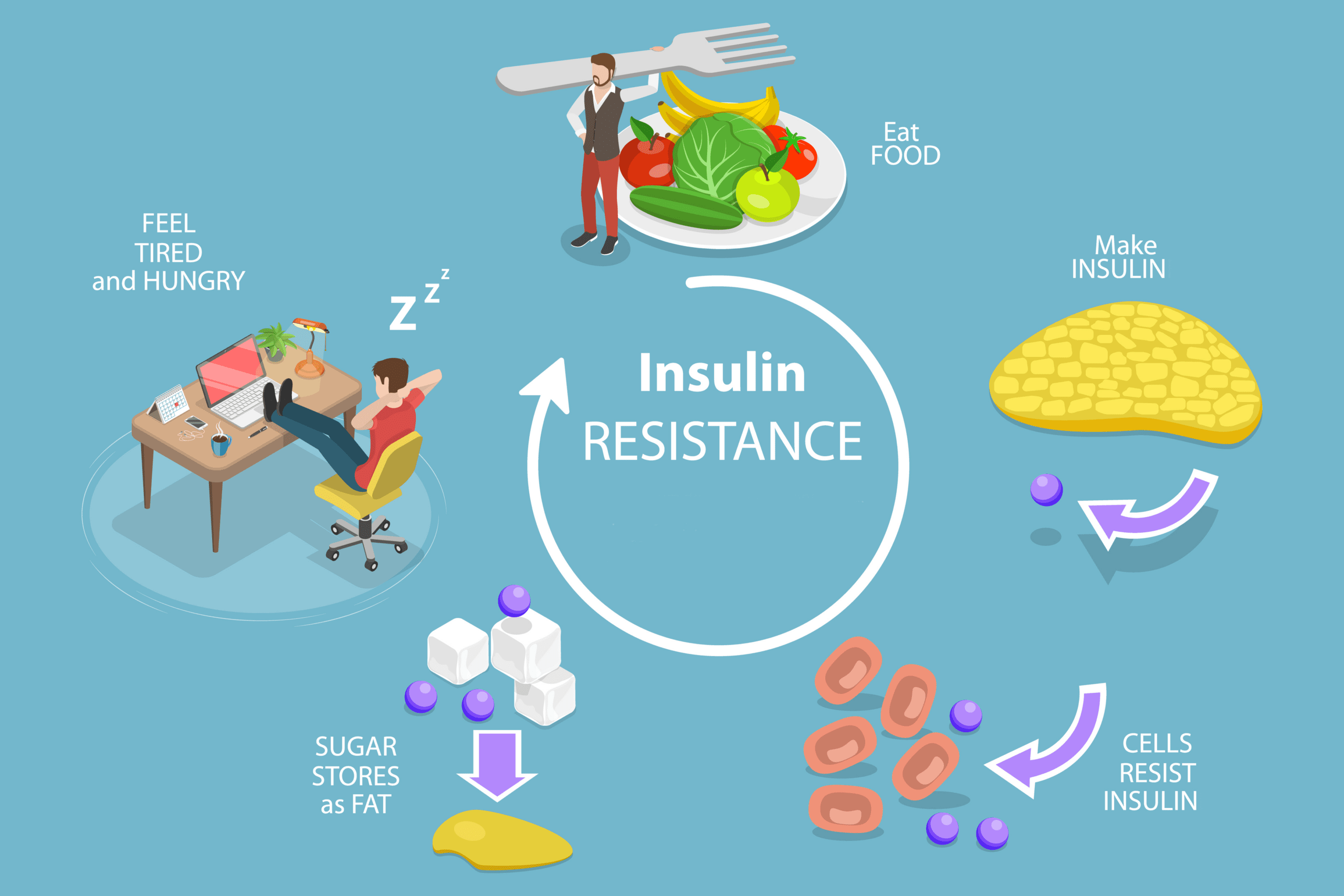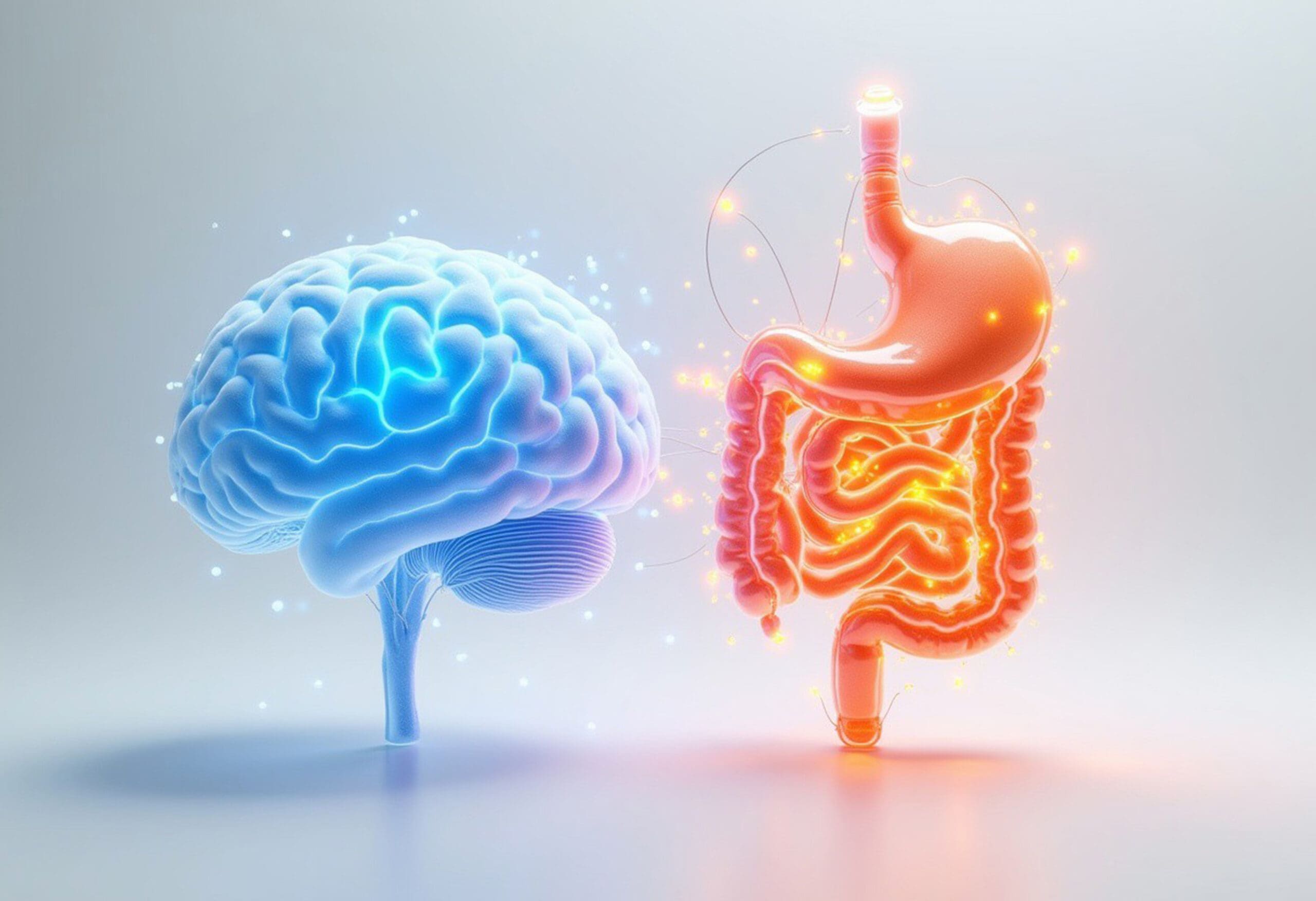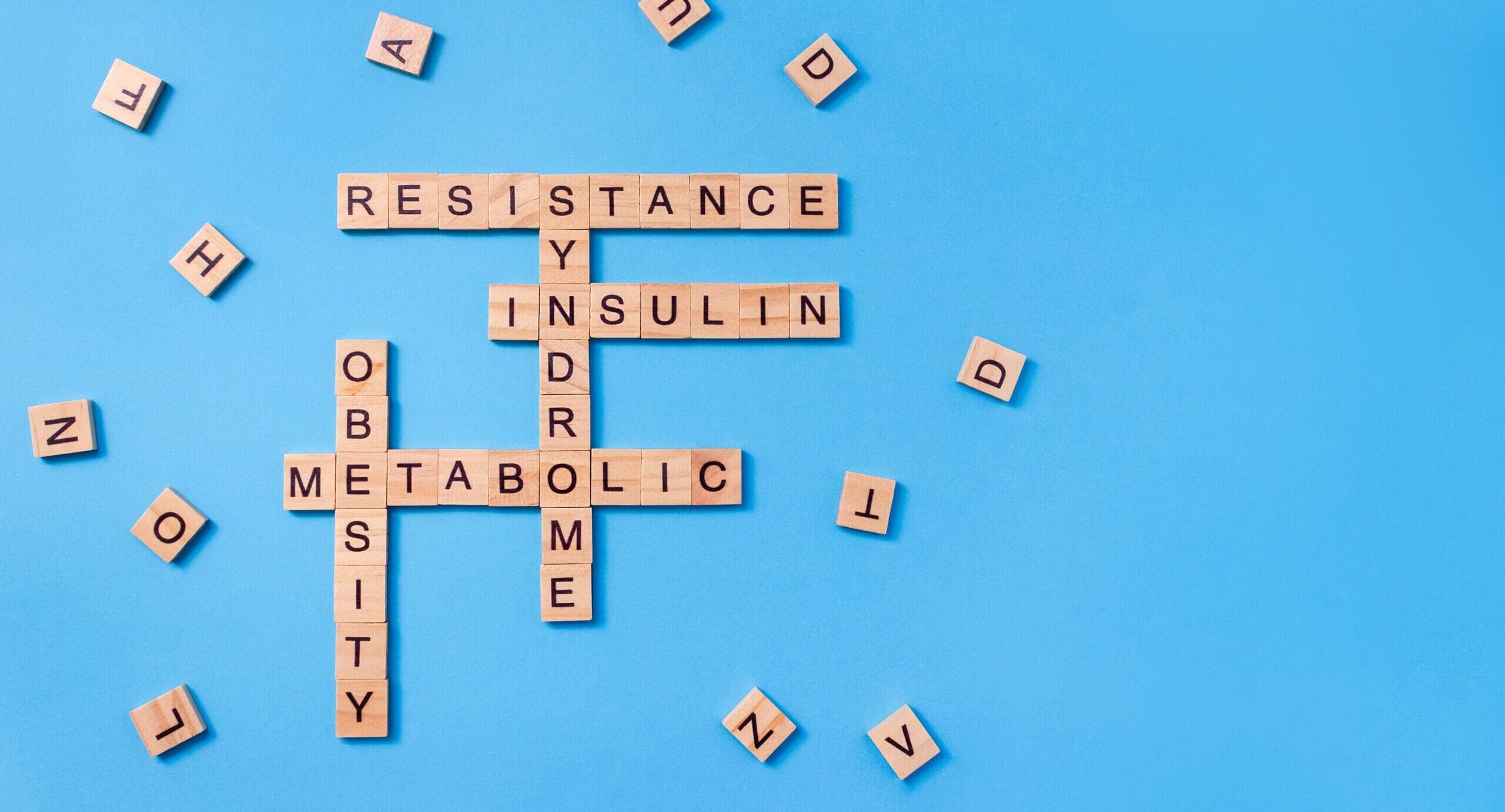Case study: Insulin resistance standing in the way of weight loss
By naturopath Margaret Jasinska
I recently saw a 33 year old lady at my clinic who wanted help with losing weight. She had two young children and had a part time job in sales. Rebecca weighed 86 kilos and was only 165cm tall. Rebecca was effortlessly slim for most of her life but found it impossible to lose weight after having her children. She had gestational diabetes during her second pregnancy.
Rebecca’s doctor did comprehensive blood tests and did detect some metabolic abnormalities. Rebecca had a very high fasting insulin level; it was 22 and should be below 10. High blood insulin promotes abdominal weight gain, fluid retention and makes people very hungry. Rebecca had raised liver enzymes and an ultrasound confirmed that she had a fatty liver.
Rebecca’s thyroid hormones were normal; however her doctor ordered an ultrasound of her thyroid gland which revealed thyroid nodules. At this stage her doctor didn’t want to do anything about the nodules; he asked her to have another ultrasound in six months time. An ultrasound also showed that Rebecca has cysts on her ovaries, and her doctor diagnosed her with a mild case of polycystic ovarian syndrome.
These findings indicated that Rebecca had a hormonal imbalance. She didn’t have a bad diet. Dinner was her healthiest meal because she always cooked protein and vegetables for her family. She ate a lot of snacks throughout the morning rather than proper meals. She also did a lot of exercise each day because it calmed her mind. However, this case illustrates that you can do plenty of exercise yet still not lose much weight if you have high blood insulin levels.
Both of Rebecca’s parents have type 2 diabetes. This means she has inherited the tendency to develop insulin resistance and excess weight. In fact it is quite rare to see a person with diabetic parents who is not overweight. People with elevated insulin levels cannot tolerate common levels of carbohydrate in their diet. Insulin doesn’t work properly in their body; therefore glucose cannot get inside their cells properly and be burned for energy. Instead, the glucose gets converted into fat and is stored in the liver and other areas of the body.
My recommendations for my patient
I explained to Rebecca that she needed to follow a lower carbohydrate and higher protein and fat eating plan long term. She had followed low carb diets in the past but they were either too extreme (where she was eating next to no vegetables) or not low enough in carbohydrate (still eating toast for breakfast and a sandwich for lunch). I put Rebecca on the lower carbohydrate higher protein eating plan in Dr Cabot’s book I Can’t Lose Weight and I Don’t Know Why.
I suggested Rebecca make a smoothie for breakfast using Synd-X Slimming Protein Powder. The high protein content would help to keep her feeling full and keep her blood sugar stable throughout the day, reducing the need for snacking.
A blood test done two years ago showed Rebecca to be vitamin D deficient. A deficiency in this vitamin worsens insulin resistance and can make weight loss more challenging. I suggested ways Rebecca could raise her vitamin D via sunshine and diet.
Insufficient iodine in the diet can raise the risk of breast, ovarian and thyroid cysts. I ordered a urine test to check Rebecca’s iodine level and it was below normal (43). I explained ways to increase iodine intake and suggested she read our book called Your Thyroid Problems Solved.
Follow up consultation
I saw Rebecca for a short consultation every four weeks. She felt she needed regular contact and reinforcement in order to stick to her plan. She asked for a consultation immediately before and after Easter because she said “If I start eating Easter eggs, I’ll be eating a lot of chocolate each day for months”.
Rebecca feels a lot more energetic, her skin is clearer and she is sleeping better. She wasn’t expecting these benefits but is thrilled with them. She has also lost 12 kilos. It is too early to check on the health of her liver, thyroid and ovaries. I will order repeat ultrasounds in 12 months. I am confident that Rebecca will continue to improve.









Leave A Comment